
Dostarlimab plus chemotherapy appears to improve progression-free survival vs placebo plus chemotherapy in patients with recurrent endometrial cancer in the phase 3 RUBY trial.

Your AI-Trained Oncology Knowledge Connection!


Dostarlimab plus chemotherapy appears to improve progression-free survival vs placebo plus chemotherapy in patients with recurrent endometrial cancer in the phase 3 RUBY trial.

Pembrolizumab plus chemotherapy followed by maintenance pembrolizumab reduced the risk of death or disease progression in patients with mismatch repair proficient or deficient advanced endometrial cancer.

Patients with resistant or refractory ovarian cancer experience clinical benefits after receiving botensilimab plus balstilimab in the phase 1 C-800 study.

Toripalimab plus bevacizumab and platinum-based chemotherapy produces a “promising” response rate in those with metastatic cervical cancer, according to an expert from Peking Union Medical College.
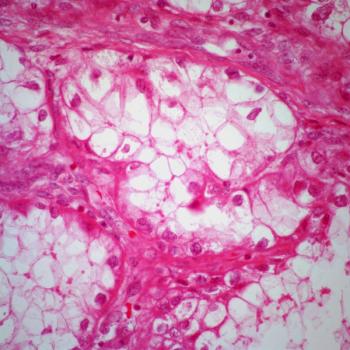
Adavosertib does not appear to be well tolerated in patients with previously treated recurrent or persistent uterine serous carcinoma in the phase 2b ADAGIO trial.
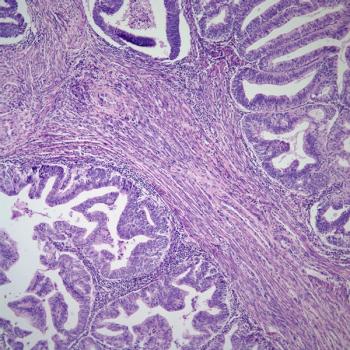
Durvalumab plus tremelimumab and hypofractionated radiotherapy yields observable clinical benefits in patients with gynecologic cancers, according to an expert from The University of Texas MD Anderson Cancer Center.

Niraparib maintenance therapy for recurrent ovarian cancer does not yield a significant overall survival benefit in an updated analysis of the phase 3 ENGOT-OV16/NOVA study.
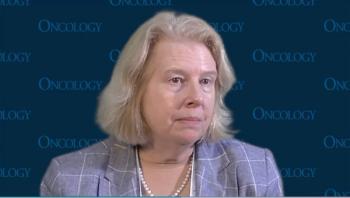
An expert from Dana-Farber Cancer Institute discusses findings from the final overall survival analysis of the phase 3 ENGOT-OV16/NOVA trial.
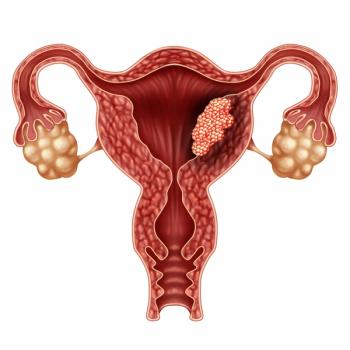
Patients with advanced endometrial cancer experience early responses to lenvatinib plus pembrolizumab in both patients who were mismatch repair proficient and all-comers.
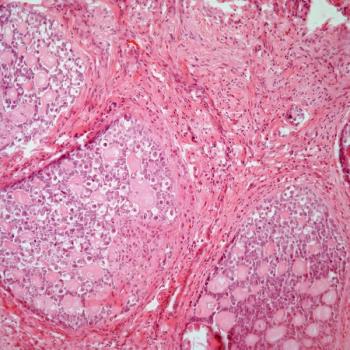
The Carolina Frailty Index Score indicates that patients with ovarian cancer classified as frail are highly more likely to die than patients classified as robust.
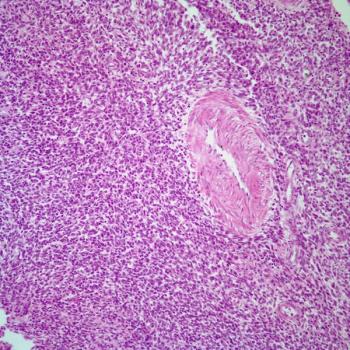
In the SOLAR phase 1b trial, a clinical benefit was observed when patients with RAS-mutated ovarian or endometrial cancer were given olaparib plus selumetinib.

The lower extremity lymphedema screening questionnaire and gynecological cancer lymphedema questionnaire appear to demonstrate comparable utility in assessing lymphedema in patients with advanced endometrial cancer.

A post hoc analysis demonstrated that dose modifications to frontline niraparib maintenance therapy did not affect progression-free survival among patients with newly diagnosed, advanced ovarian cancer.

The use of palliative care in ovarian cancer resulted in a decrease in overall readmissions and index hospitalization costs.

Durvalumab plus tremelimumab in combination with neoadjuvant chemotherapy did not yield any major adverse effects in patients with newly diagnosed advanced ovarian cancer in the phase 2 KGOG3046 trial.
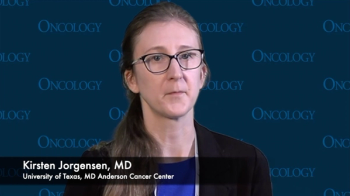
Minimally invasive surgery for interval debulking resulted in a lower mortality at the 30- and 90-day time points compared with laparotomy in advanced ovarian cancer.

Vadim Gushchin, MD, says that treatment with cytoreductive surgery and hyperthermic intraperitoneal chemotherapy should not be limited by concerns of negatively impacting health-related quality of life in ovarian cancer.
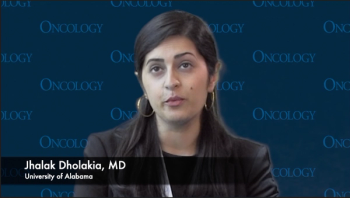
An ongoing trial assessing neoadjuvant mirvetuximab soravtansine plus carboplatin in advanced folate receptor α–positive ovarian was reviewed by Jhalak Dholakia, MD, at The Society of Gynecologic Oncology 2022 Annual Meeting on Women’s Cancer.
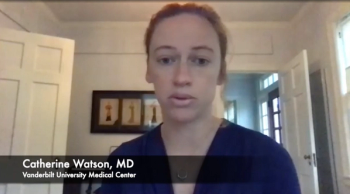
At SGO 2022, Catherine Watson, MD, spoke about the 2 arms of a randomized education trial presented at the conference.
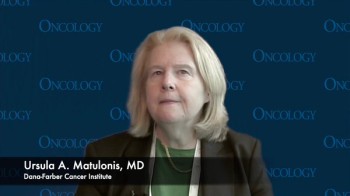
In an interview with CancerNetwork®, Ursula A. Matulonis, MD, discusses the toxicities associated with mirvetuximab soravtansine in folate receptor α–high platinum-resistant ovarian cancer.

At SGO 2022, Catherine Watson, MD, spoke about how to improve genetic education for patients with ovarian cancer.
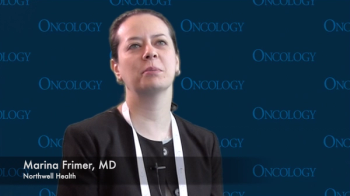
Marina Frimer, MD, spoke about what the future holds for the treatment of patients with platinum-sensitive recurrent uterine cancer.
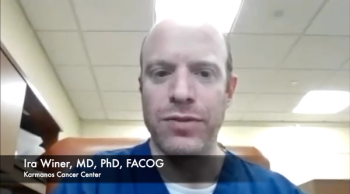
Ira Winer, MD, PhD, FACOG, spoke about high response rates observed in patients with pretreated platinum-resistant ovarian cancer from the phase 1/2 ARTISTRY-1 trial.

Ursula A. Matulonis, MD, discusses key data with mirvetuximab soravtansine for patients with folate receptor α–high platinum-resistant ovarian cancer that read out of the phase 3 SORAYA trial.

At SGO 2022, Jyoti S. Mayadev, MD presented results of the NRG-GY017 trial of atezolizumab as either an immune primer or with chemoradiation for certain patients with locally advanced cervical cancer.
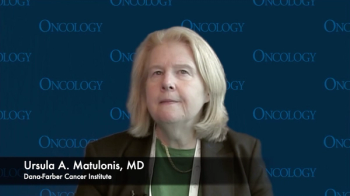
In a discussion with CancerNetwork®, Ursula A. Matulonis, MD, describes the potential of mirvetuximab soravtansine (IMGN853) as a treatment for patients with folate receptor α (FRα)–high platinum-resistant ovarian cancer.

Ira Winer, MD, PhD, FACOG, spoke about patients with pretreated platinum-resistant ovarian cancer treated with nemvaleukin alfa plus pembrolizumab in the phase 1/2 ARTISTRY-1 trial.
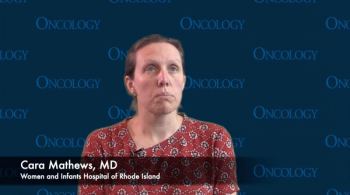
Cara Mathews, MD, spoke with CancerNetwork® about research examining dostarlimab vs doxorubicin for patients with mismatch repair–deficient endometrial cancers.

Marina Frimer, MD, spoke about the goals of a phase 2 trial and how it can impact patients with platinum-sensitive recurrent uterine serous carcinoma.

Ira Winer, MD, PhD, FACOG, spoke about which presentations during The Society of Gynecologic Oncology 2022 Annual Meeting he most enjoyed.